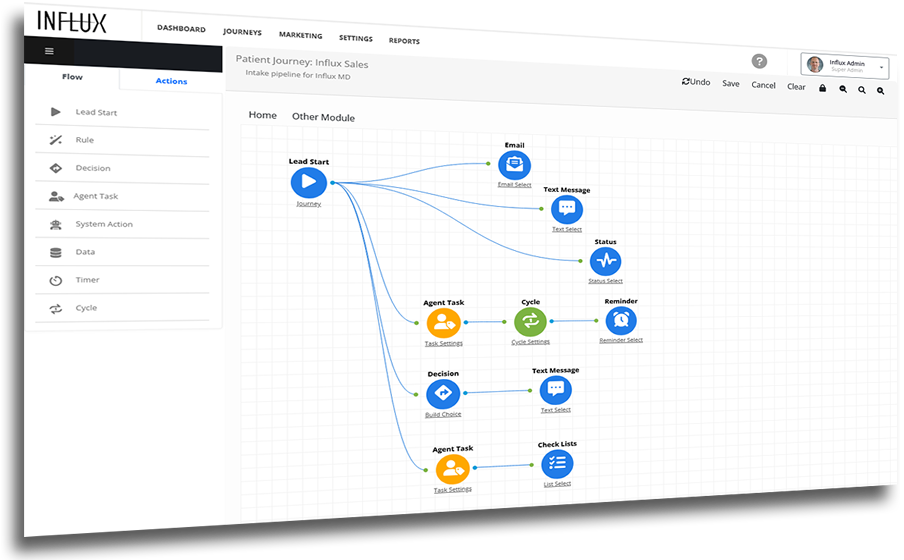
Medical Sales
Glossary
As a salesperson, it's crucial to understand the terms in a sales glossary in order to be successful.
Here are a few key terms to know:
- Conversion rate:This refers to the percentage of potential customers who actually make a purchase. It's important to track your conversion rate in order to make improvements to your sales process.
- Lead Journey:A lead journey refers to the process of a potential customer moving from being aware of your brand to making a purchase. It involves guiding them through the sales funnel stages, from initial interest to consideration to final decision-making. Mapping out a lead journey can help businesses understand their customers' behavior and create targeted marketing strategies to convert them into loyal customers.
- Lead generation:This is the process of identifying potential customers and getting them interested in your product or service. It's important to have a solid lead generation strategy in place in order to consistently bring in new business.
- Lead management:Medical lead management means reaching potential clients and guiding them through an intake process until they become patients. Because the journey a lead takes to become a patient at your practice is unique, medical lead management varies considerably between medical practices.
- Pipeline:Your sales pipeline refers to the various stages that a potential customer goes through before making a purchase. It's important to track where each customer is in the pipeline in order to know how to best move them toward a sale.
- Sales automation: Refers to the process of using technology to streamline and automate sales-related tasks, such as lead generation, customer management, and sales forecasting. This can help medical practices save time, reduce errors, and increase productivity, allowing sales teams to focus on building relationships with customers and closing deals. Sales automation tools can include CRM software, marketing automation platforms, and sales enablement tools, among others. The goal of sales automation is to make the sales process more efficient and effective, ultimately leading to increased revenue and growth for the business.
- Sales cycle:This refers to the amount of time it takes for a potential customer to go through the sales pipeline and make a purchase. Understanding your sales cycle can help you make more accurate sales predictions and plan your sales activities accordingly.
- Sales Funnel:A sales funnel is a marketing model that represents the journey that a potential customer goes through before making a purchase. It is divided into several stages, with each stage representing a different level of engagement with the product or service being sold. The goal of a sales funnel is to guide the customer through each stage and ultimately convert them into a loyal customer. The stages of a sales funnel typically include awareness, interest, consideration, and decision. By understanding the customer's journey through the sales funnel, businesses can identify areas for improvement in their marketing and sales strategies.
- Upselling:This is the process of convincing a customer to purchase additional products or services beyond what they originally intended to buy. It's important to know how to effectively upsell in order to increase your sales revenue.
